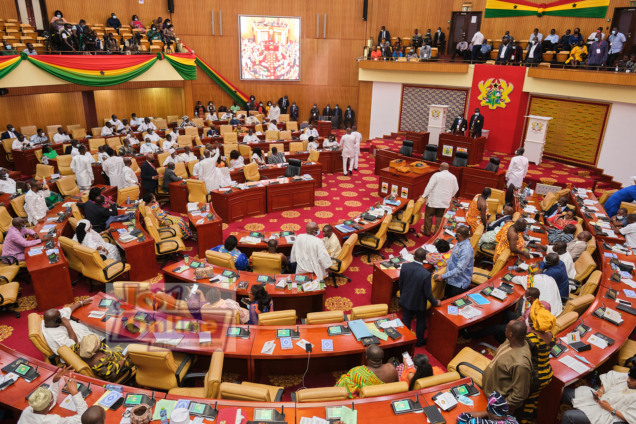This is a great day the Lord has made. Let us rejoice and be glad in it as Ghanaians. Ghana has and continues to be touted as the beacon of Africa’s democracy.
This accolade is largely due to the successful and successive organization of seemingly free, fair and periodic elections in the country since 1992.
Similarly, Ghana’s envious democracy is also deepened by the peaceful transition of power from ruling to opposition parties. These feats have helped in the gradual consolidation of the country’s democracy.
Notwithstanding, as the adage goes "she/he who feels it, knows it better."
Ghanaians have in successive elections observed upheavals such as vigilantism, snatching of ballot boxes, excessive political tension, and unwarranted pronouncements among others, during elections, that in a way taint and spoil the hard-earned democracy of the country.
Irrespective of these happenings, Ghanaians however, continue to take bold steps and make concrete decisions in an effort towards strengthening the country’s democracy, internally and externally.
The 2020 elections in particular, come with new dynamics, which is the cessation of the disturbing phenomenon of ‘winner takes all’ in the body politics of a democratic country like Ghana.
In a truly democratic sense, there is the avenue for an inclusive and deliberative process of governance.
However, for years, this has not truly been the case in Ghana, as ruling governments always bulldozer their way through during critical policy and decision making times, especially in the house of parliament, as a result of having the majority among the Members of Parliament (MP).
This phenomenon seriously erodes the chances of adopting a non-partisan policy and decision-making process in the house and by successive governments.
However, this tendency is likely to be truncated in the eighth parliament of the Republic of Ghana.
Under the eighth parliament, the ruling New Patriotic Party and the National Democratic Congress, which is the opposition party, have equal membership (137 each) in parliament, in addition to an independent MP.
Similarly, the house is for the first time in the history of Ghana, led by a Speaker from the opposition party. These dynamics in Ghana’s politics offer a renewed hope of true democratic dispensation in the country.
With the Speaker from the opposition party, the First Deputy Speaker from the ruling party and the Second Deputy Speaker as an independent, coupled with equal membership in parliament, Ghanaians look up to seeing a true reflection and exercise of an inclusive, deliberative and non-partisan approach to policy and decision making in the house of parliament.
The eighth parliament must demonstrate the long-awaited clarion call to put the interest of Ghana first in making critical policies and decisions that advance the development of Ghanaians, and not necessarily the usual partisan interest that takes precedence in most parliamentary proceedings.
By so doing, Ghanaians will have a feel of a governing system that embraces unity in diversity, promotes national interest and implements policies, programmes and initiatives that meet the increasing needs of the people of Ghana.
The eighth parliament, therefore, offers a great opportunity to exercise the rule of law, and checks and balances as well as control corruption, thereby consolidating Ghana’s democratic credentials.
Latest Stories
-
Africa Food Systems Parliamentary Network urges governments to increase investment in agriculture
7 hours -
AU and partners urge youth to get involved in efforts to transform continent’s food systems
8 hours -
Fire kills 3-year-old at Asawase-Dagomba Line in Ashanti Region
8 hours -
Paskal A.B. Rois: How Mahama inspires me
8 hours -
Complete abandoned projects in Akatsi North District – Chiefs to Mahama
8 hours -
Painter and sculptor B. Acheampong turning his passion for art into profitable venture
9 hours -
Presidential lodge, RM residency in Ashanti region left to rot away
10 hours -
Herty Corgie highlights the essence of gratefulness in ‘My Gratitude’
12 hours -
ANNOUNCEMENT: Joy FM temporarily goes off air January 11
12 hours -
Yango honored with two titles at the Technovation Africa Awards 2024
12 hours -
Aowin Traditional Council declares war on illegal mining with spiritual intervention
12 hours -
Leadership must ensure equity for all citizens, regardless of faith – Asiedu Nketiah
12 hours -
Prof. Alex Manu appointed Executive Director at Centre for Social Justice
12 hours -
Imminent changes within some key security agencies, state institutions, and its implications
12 hours -
There are more women than men, but there’s a man for every woman – Rev. Nana Yaa
13 hours

